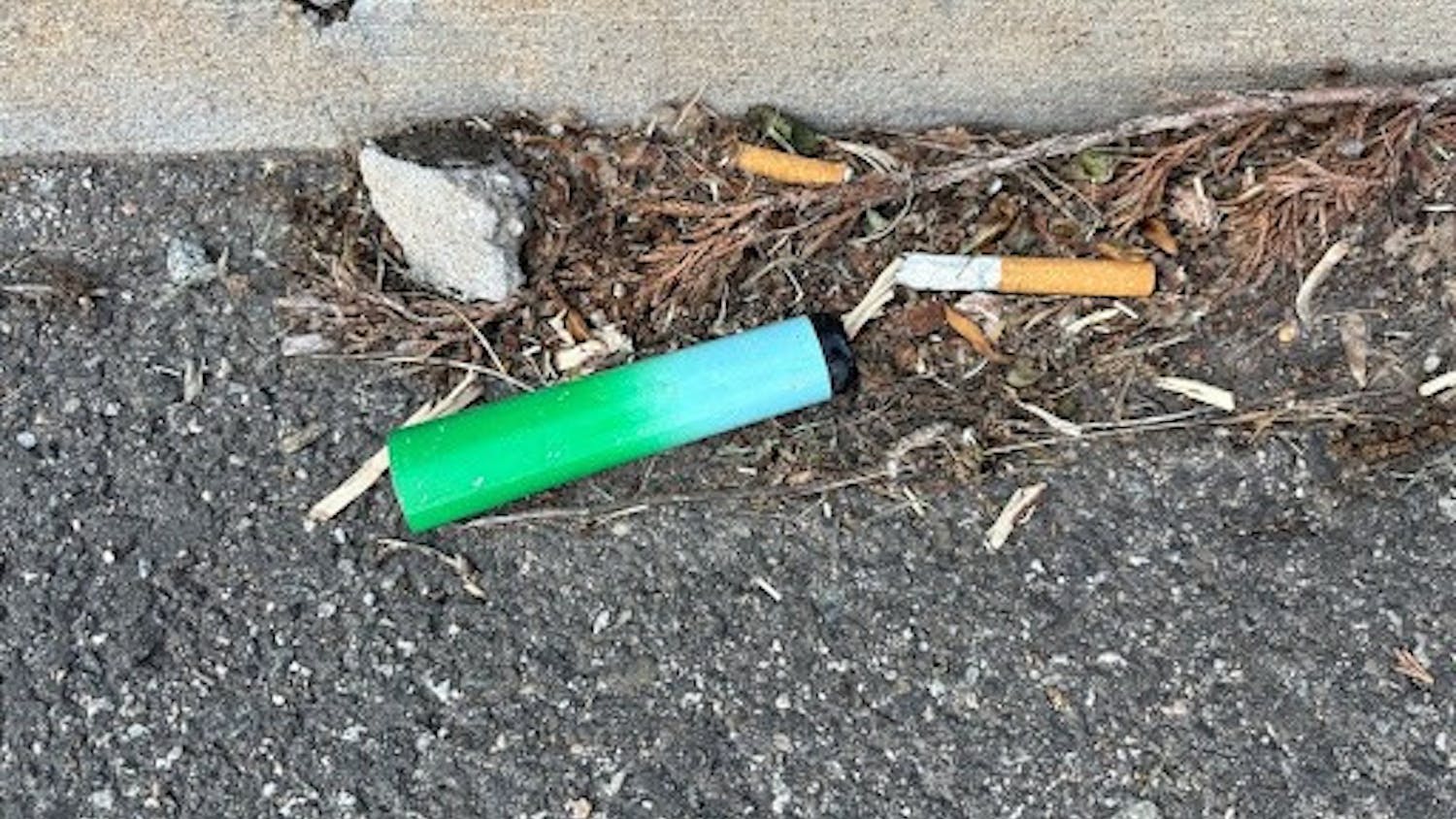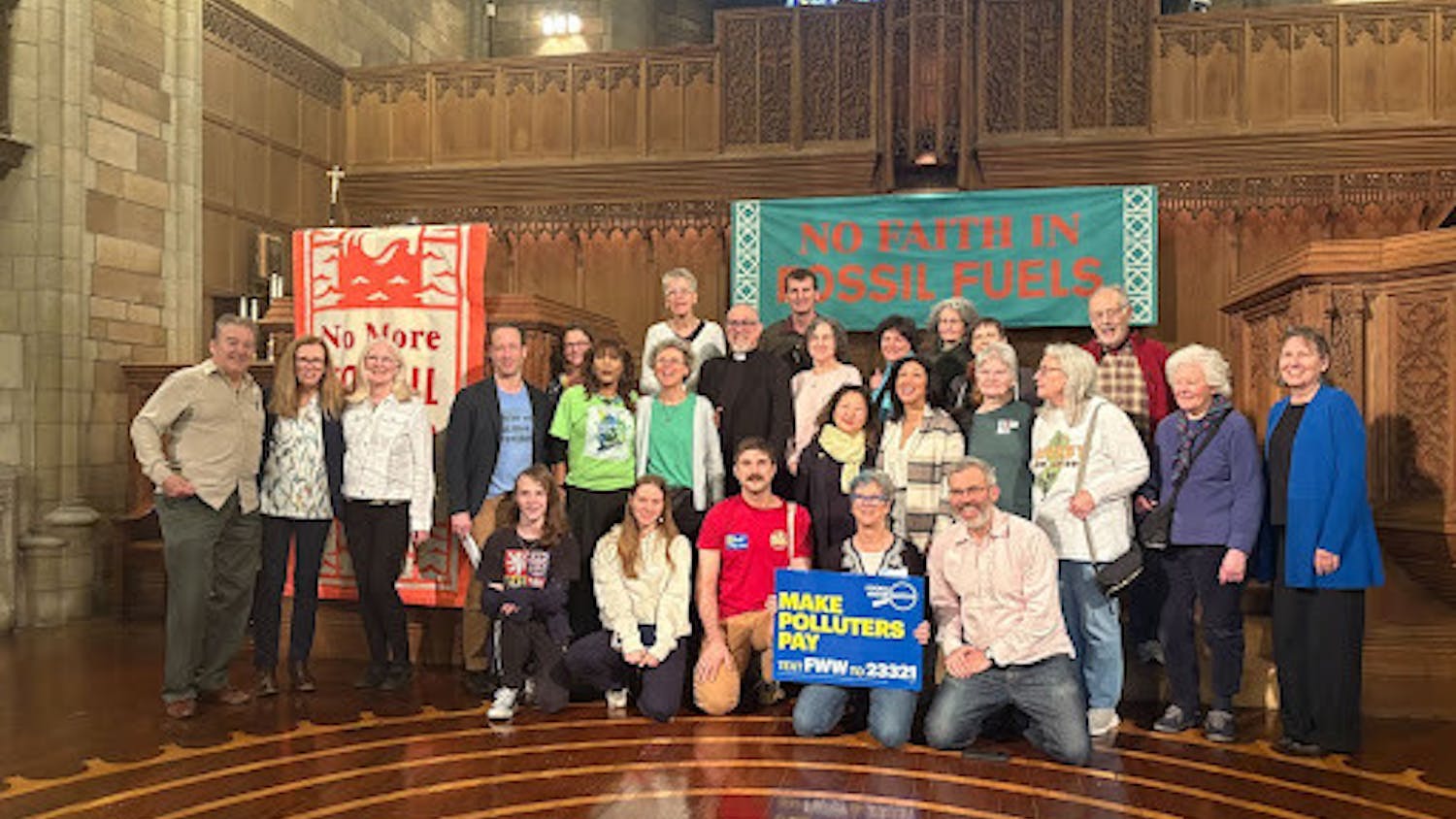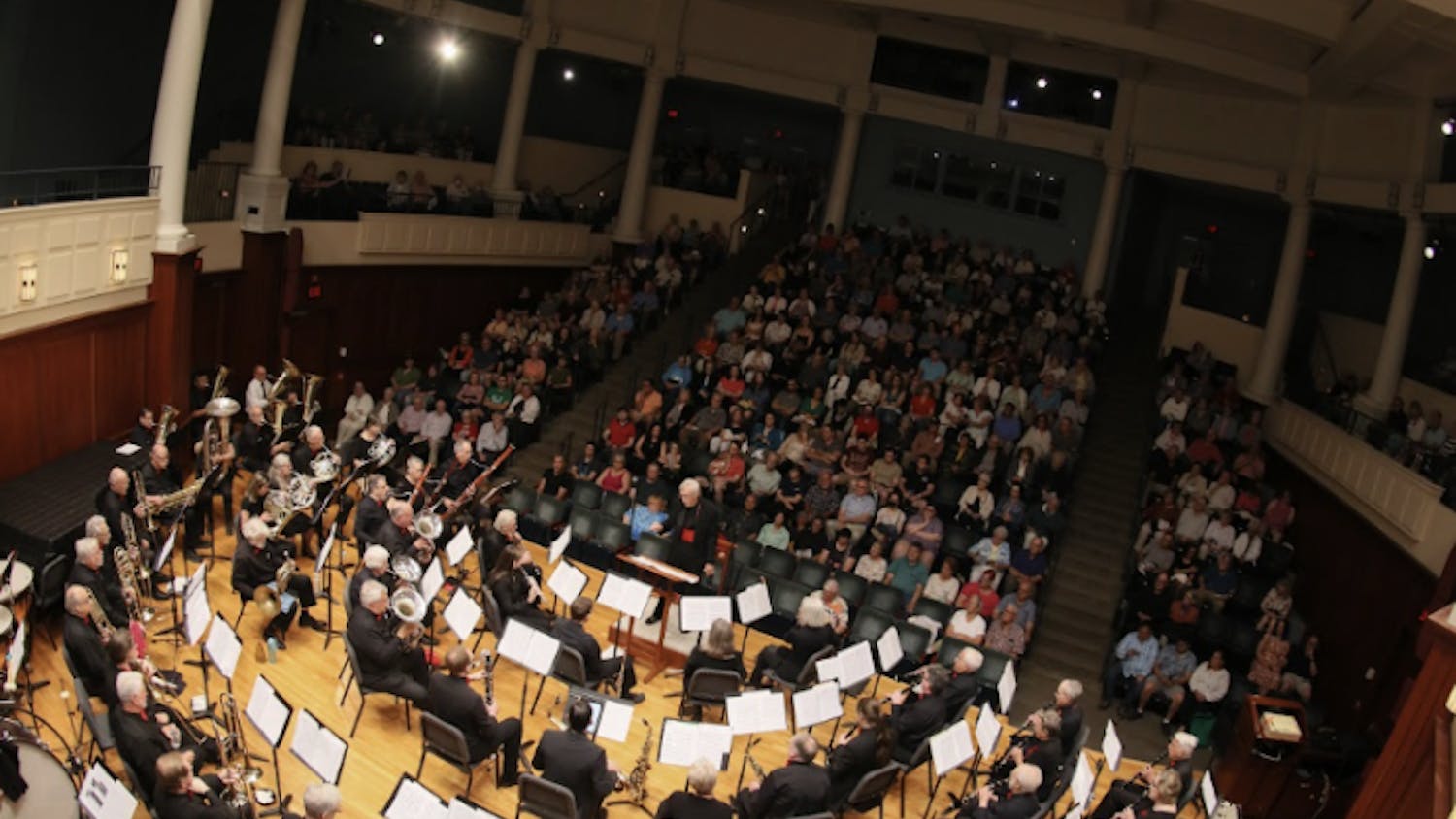By Edward Worton
Correspondent
LGBT activist and nuclear engineer Samuel Brinton, standing in his trademark high heels, began his discussion with the College’s students by asking whether anyone knew a survivor of conversion therapy. Only about three people raised their hands.
Those who didn’t raise their hands, however, would know a survivor’s story by the end of the event.
Brinton spoke at the College on Tuesday, Oct. 21, as a part of PRISM’s Queer Awareness Month. He went into detail about his experiences with conversion therapy and his continuing journey to counter conversion therapy’s reach in the United States.
As a child raised by Southern Baptist missionaries, Brinton never had a concrete idea of what having feelings for his best friend Dale meant. But when he told his father of those feelings, it was the start of a long and painful experience.
Immediately after revealing his feelings, Brinton awoke in the emergency room — his father had knocked him out cold. This abuse continued until his mother found it best to take his problem to a professional, explained Brinton.
Brinton was told initially that the government hated people like him and had killed off every other gay person in the country. He was told he was next if they ever found him. Then, he was told more heinous and elaborate lies: the gays, they said, had brought AIDS into the country, and he was writhing with the disease for being gay himself. After that, he was told that God hated him and everyone like him.
These efforts to rid him of his “disease” did not stop there, but they had already reached a terrifying efficacy.
Brinton emphasized the importance of any level of conversion therapy from the beginning stages to its torturous ones, whether your pastor simply puts his hand on your back and tells you to change or puts you through electroshock therapy.
“Both of those are just as evil and just as wrong and just as damaging to your mental health,” Brinton said.
Brinton was eventually forced to suffer through sessions of physical aversion therapy, where his hands were strapped to blocks of ice and he was shown images of men doing things like hugging or holding hands. Then, coils were wrapped around his hands, channeling intense heat whenever images of men touching each other were shown and going cold when images of women and men were shown. These sessions were manipulated to make him associate pain with homosexuality and the lack of pain with heterosexuality.
It worked very well, according to Brinton. He avoided the touch of his father and hid behind his mother’s skirts constantly after the treatment.
However, Brinton’s story demonstrated that even the most brutal of therapies could not change the identity he did not choose. Tendencies of suicide surfaced when he thought he had failed his God miserably and should join him in death instead. After his first suicide attempt failed, he was resolved to keep trying, but his place in the therapy room awaited him in what he recalled the most horrible experience of his life.
He was introduced to electroshock therapy. Needles were stuck into his fingers and, following the same procedure as his previous sessions, electro pulses ran through his limbs when images of men having sex with men were shown and ceased when images of men and women having sex were shown.
“My mother had to hear my screams in the other room and not come running in,” Brinton said.
Brinton has spoken at several important communities to talk of one fundamental issue: the ramifications of conversion therapy on the individuals who suffered through it. The rate of those who went through conversion therapy is high compared to those who survived it, he said, recalling that of the 80 victims he know, about 12 of them would still be alive.
“We are extremely prone to suicide,” he said.
Brinton affirmed that the reason conversion therapy was a taboo topic was because the victims weren’t there to tell their stories. His goal is to make awareness of conversion therapy spread, telling the students to share his story with others each time and identify it as a serious issue.
Ryan Eldridge, a political science and women’s and gender studies double major and member of the PRISM executive board, was very happy to see Brinton speak, calling him a “unique speaker.”
“We try to offer a very diverse range of content, because the queer community on TCNJ’s campus is so vibrant and diverse that we are able to bring things to satisfy everyone,” Eldridge said.
Having a knowledge of conversion therapy, Eldridge saw value in welcoming Brinton to the campus to educate others on the topic.
“It’s still a current issue, and there are still individuals who are going through it,” Eldridge said. “It’s not really talked about because it’s kind of seen as a thing of the past.”
The hope is that hearing about the past will motivate change in the present as people hear Brinton’s story.
Brinton does not want anyone to have the same experience he did, so he made it his job to advocate for a bill proposing to ban this type of therapy among minors. California and New Jersey are the only two states that have gone ahead with banning conversion therapy practices. He expressed his joy of speaking in a state that’s already outlawed it for the first time.
“Forty-eight more states to go,” he said with a smile.






